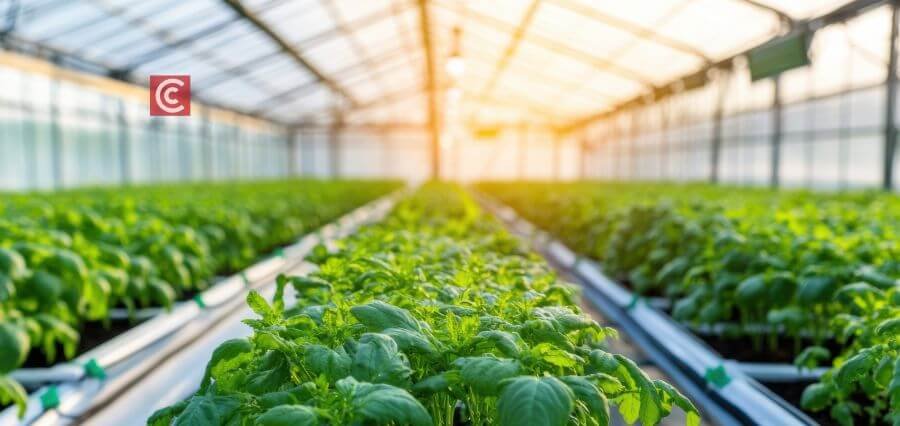The agricultural sector has witnessed a dramatic change over the last few decades, propelled by advances in technology that are transforming food production, distribution, and consumption. Of these innovations, next-gen AgriTech solutions are at the forefront of this change. These cutting-edge technologies are transforming the agriculture sector, providing farmers with the means to enhance productivity, sustainability, and efficiency. Agricultural Transformation. This piece delves into the emergence of next-gen AgriTech solutions, their implications, and agriculture’s future.
What is Next-Gen AgriTech?
Next-gen AgriTech is the term used to describe the innovative technologies and advances that are engineered to streamline farm processes and make farming more efficient, sustainable, and profitable. Solutions include artificial intelligence (AI) and machine learning, precision farming, drones, autonomous tractors, and biotechnology. The objective of next-gen AgriTech is not only to enhance crop production, but also to minimize environmental footprint, enhance resource efficiency, and assist farmers in coping with the intricacies of contemporary agriculture.
Next-Generation Precision Farming
Precision farming is perhaps the most influential sector of next-gen AgriTech. Precision farming refers to the utilization of sophisticated tools and technologies to track and manage crops in real-time. By combining sensors, satellite imaging, and AI-driven analytics, farmers can obtain comprehensive insights into soil health, weather conditions, and crop health.
These technologies allow farmers to apply fertilizers, pesticides, and water more efficiently and in a targeted manner, minimizing waste and environmental damage. Consequently, the next-generation AgriTech technologies are helping in the development of more sustainable farming methods that can feed the world’s increasing population without depleting natural resources.
The Role of Drones and Robotics
Another key innovation in next-generation AgriTech is the application of drones and robotics in farming. Drones with high-definition cameras and sensors can be used to scan big agricultural fields from the air and provide farmers with real-time information on crop health, moisture, and the incidence of pests or diseases. The technology enables early detection and specific treatments, reducing crop damage and enhancing yield.
Mechanical systems are also transforming activities such as planting, harvesting, and weeding. Robots can be autonomously coded to undertake tasks that are labor-intensive and repetitive in nature to cut down manual labor and drive efficiency in operation. Automation takes care of shortage of labor, saves physical load on farmhands, and facilitates improvement in agriculture output.
Biotechnology: Genetic Modifications and Crop Protection
Biotechnology is also a priority sector of next-generation AgriTech that is revolutionizing the field of agriculture. With gene editing and gene modification technologies such as CRISPR, scientists can create more disease-resistant, pest-resistant, and weather-tolerant crops. These biotech crops could potentially boost food security significantly by providing assurance that crops can withstand severe environmental pressures.
Next-generation AgriTech products also include the creation of more environmentally friendly natural pesticides and fertilizers than those currently used. Genetic modification of crops provides the possibility of generating more food with less input, hence more sustainable farming.
The Role of Artificial Intelligence and Big Data
Artificial intelligence (AI) and big data form the core of next-generation AgriTech innovations. AI algorithms are capable of analyzing large amounts of data gathered from different sources, including sensors, satellites, and weather stations, to enable farmers to make the right decisions about their crops. For example, AI can identify the best time to plant, harvest, or irrigate crops based on trends in data and environmental factors.
Big data analytics also play a crucial role in crop modeling and forecasting, enabling farmers to better understand and predict factors that may affect crop yields. Farmers can make wiser decisions using these tools to maximize productivity and reduce risks linked to volatile weather and market volatility.
Sustainability and Environmental Benefits
Next-gen AgriTech solutions are not just about boosting productivity but also ensuring that farming practices become more sustainable. Innovations in water management, for example, allow farmers to use less water while maintaining crop health. Smart irrigation systems powered by IoT (Internet of Things) devices can measure soil moisture and adjust water usage accordingly, reducing water wastage in agriculture.
By reducing the application of chemical fertilizers and pesticides, precision farming and biotechnology also prevent the environment from being harmed by minimizing runoff into local ecosystems. The practices ensure cleaner soil, water, and air, making the agricultural practices sustainable and enabling future generations to farm even better.
A Brighter Future for Agriculture
The emergence of next-generation AgriTech solutions is revolutionizing agriculture into a more efficient, sustainable, and resilient sector. From precision agriculture and biotechnology to AI and robotics, these technologies are assisting farmers in overcoming the challenges of contemporary farming, such as climate change, resource scarcity, and labor shortages. With the global population still on the rise, the demand for innovative agricultural solutions will only become more urgent. With AgriTech of the future in the vanguard, the future of farming is brighter, more productive, and more sustainable than ever.

